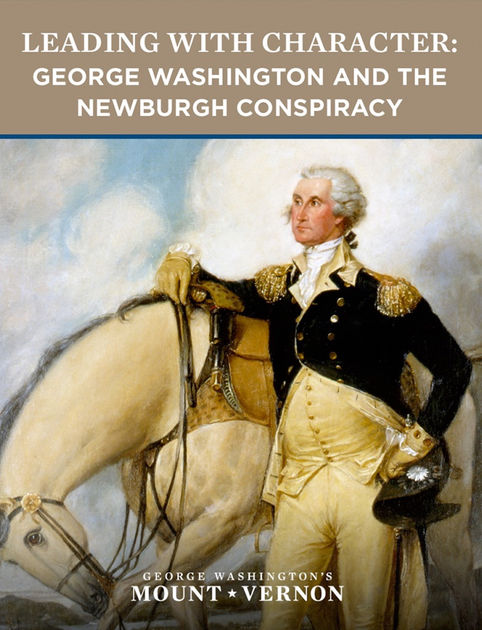Author’s Corner
Leading with Character Vol. 2, Lessons in Leadership - George Washington and the Newburgh Conspiracy
Colonel (Retired) Sean Hannah, Ph.D.
Colonel (Retired) Sean Hannah, Ph.D.
As part of a series of free e-books on leadership, Colonel (retired) Sean Hannah and James Kirby Martin analyzed the events surrounding the Newburgh Conspiracy.
In 1782-1783 at the end of the Revolutionary War, a series of little known but highly significant events occurred at the Continental Army’s final winter campsite near Newburgh, New York. The cantonment itself, located slightly inland from the Hudson River in an area called New Windsor, was some fifty miles north of New York City, the main base of British operations and forces, as the war was coming to an end.
A series of confrontations involving military leaders at Newburgh and civilian leaders in the Continental Congress, then meeting at the Pennsylvania State House (Independence Hall) in Philadelphia, could have produced a military coup, or, perhaps, even worse, some form of a military dictatorship, what today we would describe as a “Napoleonic” ending to the American Revolution. If the events had played themselves out differently, the ideal of a freedom loving republic could have been crushed at the new nation’s inception. That such an ending, characteristic of most modern major revolutions, did not happen can be credited to the leadership skills and character of one person, the Continental Army’s commander in chief George Washington.
Using the events of Newburgh in 1783, the purpose of this case is to provide a conceptual understanding of character, illuminate the critical functions of character, and describe its role in exemplary leadership. Throughout the case, the tenets of character-based leadership are applied to the events surrounding a strong challenge to George Washington’s military leadership — the crisis at Newburgh.

"Your legacy is the people you develop. Have you developed the future?"
Colonel Patrick Sweeney, Ph.D.,(USA, Retired, USMA 1982)
More +
More +





